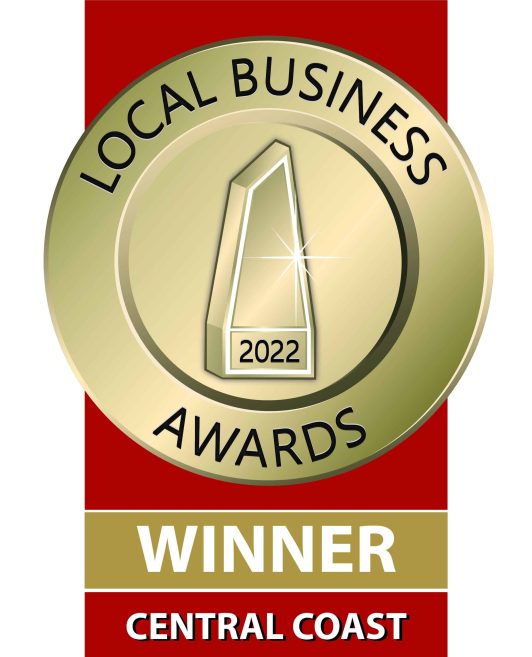Sleep Apnea Treatment
The team at Albany Dental can treat gum disease, sleep apnea, teeth grinding and more.
Visit our Gosford clinic today to resolve your dental issue!
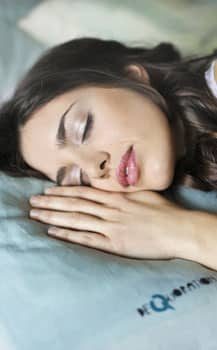
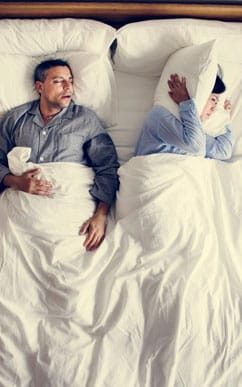
The team at Albany Dental can treat gum disease, sleep apnea, teeth grinding and more.
Visit our Gosford clinic today to resolve your dental issue!


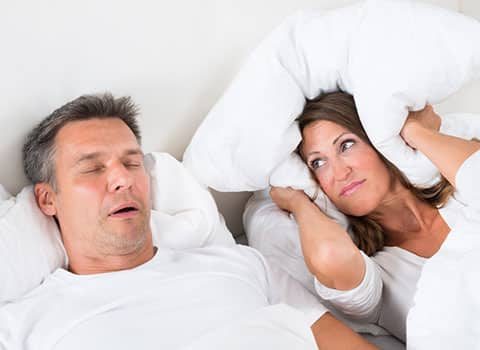
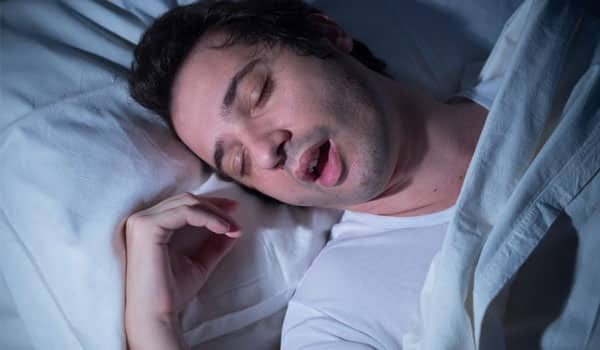
Here at Albany Dental, we provide effective sleep apnea treatment from our Gosford dental clinic. If you’ve noticed you’re having difficulty sleeping, there’s a chance you may be experiencing Obstructive Sleep Apnea (OSA).
OSA can affect people of all ages and typically causes you to develop snoring issues and struggle for energy throughout the day. This condition can severely impact your health and quality of life and should be taken seriously.
How can a dentist help? Sleep apnea can have big implications on your teeth, including gum disease or worn, cracked or broken teeth. This is because sleep apnea patients tend to breath through their mouth while sleeping, which can cause dry mouth and cause tooth decay, gingivitis, mouth sores and more.
If left untreated, it can increase your risk of general health problems.
Sick and tired of being kicked out of the bedroom for loud snoring? Albany Dental provides specialist sleep apnea treatment to get you off of the couch and back into bed. Allow us to work alongside you to establish a detailed report of your symptoms through comprehensive discussion and testing.
Our professional team can devise a treatment plan tailored to your condition, requirements, and budget.
Early detection and correction of OSA is essential in preventing further health issues such as:

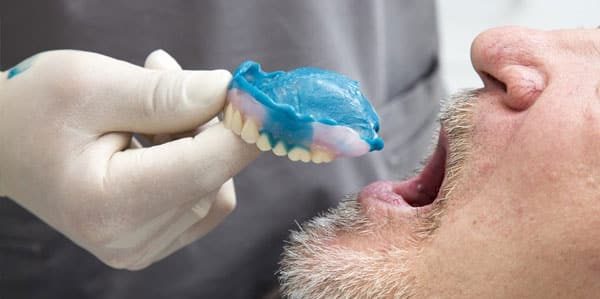
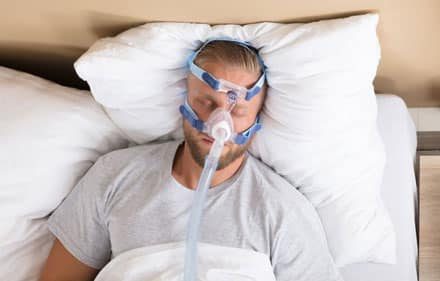
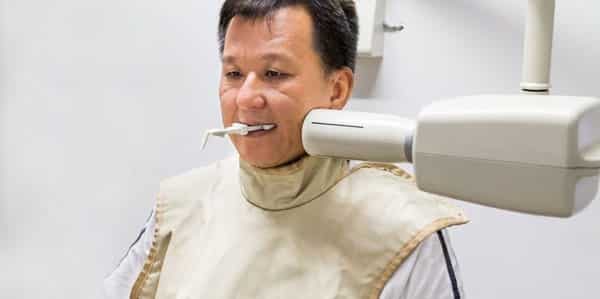
If you have previously been diagnosed and treated for obstructive sleep apnea, your medical provider may have issued you with a CPAP machine. While CPAP machines are commended for their effective treatment of OSA, many patients struggle to use them regularly, limiting the devices’ efficiency.
If you are having difficulty using your CPAP machine as often as advised, please feel free to reach out to the team at Albany Dental. We can offer various alternatives such as mouthguards or other anti-snoring appliances, working together with your doctor and your sleep physician to find a suitable solution.
We also provide general dental treatments to restore the condition of your teeth as a result of sleep apnea. For more information regarding sleep apnea treatments or our other dental services, don’t hesitate to give us a call on 02 4324 1181.
The most common sleep related breathing disorder (Otherwise known as Obstructive sleep apnea or OSA) is when the muscles supporting your tongue and soft palate relax, it causes the upper airway to close while sleeping.
It is not uncommon for someone to experience dozens, if not hundreds, of breath-holding (apnea) and restricted breathing (hypopnea) events through the night.
As each episode occurs, the body is deprived of oxygen and carbon dioxide increases in the blood. In response to the buildup of carbon dioxide, the brain rouses the body to resume breathing – hence the sleep disturbance.
Not everyone with snoring issues has OSA. However, suppose you are experiencing other symptoms such as insomnia, hypersomnia, headaches, or thunderous snoring. In that case, we advise that you contact our team at Albany Dental for a consultation.
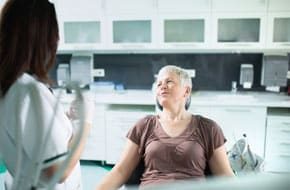
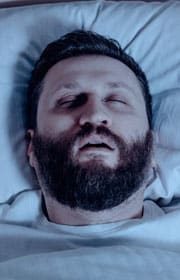
Sleep apnoea is a condition that can affect individuals of any age, but certain factors increase the risk. Sleep apnoea is more common in overweight individuals, older adults and males. People with certain anatomical features such as a thick neck, recessed chin or enlarged tonsils also have a higher risk. A family history of sleep apnoea, smoking and use of alcohol or sedatives can increase the likelihood of developing the condition. Additionally, those with nasal congestion or anatomical variations in the nasal passages are more prone to experiencing sleep apnoea. Consulting a healthcare provider is recommended for those who suspect they might have this condition.
There is some evidence to suggest that genetics may influence one’s likelihood of experiencing sleep apnoea, alongside lifestyle and environmental factors. Studies have observed that having a family member with sleep apnoea can be associated with an increased chance of developing the condition, pointing towards a potential hereditary aspect. However, having a genetic predisposition to sleep apnoea does not necessarily mean that an individual will develop it. It may simply suggest a heightened sensitivity to the typical triggers of the condition. It may be helpful to consult a healthcare professional to understand how these factors might apply to your situation.
Some individuals explore alternatives to using a Continuous Positive Airway Pressure (CPAP) machine to manage sleep apnoea, particularly when the condition is less severe. The suitability of alternative methods may vary based on the specific characteristics and severity of the apnoea. Lifestyle adjustments, such as modifying diet, reducing alcohol consumption and changing sleep positions, might be considered. Additionally, oral appliances that adjust the positioning of the mouth and throat are another potential option. These alternatives could be explored as part of a sleep apnoea remedy. If you are finding it difficult to use your CPAP machine consistently, consider reaching out to the team at Albany Dental. We can discuss alternatives such as mouthguards or other anti-snoring appliances in collaboration with your doctor and sleep physician to explore potential solutions.
Treatment options for sleep apnoea may vary based on individual health conditions, the severity of the apnoea and the underlying causes. Continuous Positive Airway Pressure (CPAP) machines are often used to manage severe sleep apnoea. They can help maintain an open airway during sleep, which may reduce apnoea and snoring episodes. For individuals who may find CPAP machines uncomfortable or not suitable, alternatives could include making lifestyle adjustments, using oral appliances or considering surgical interventions in certain cases. It might be helpful to consult a healthcare provider to discuss the various options and explore an approach that could be fitting based on a comprehensive evaluation.
| Monday | 8:30am – 6:30pm |
| Tuesday | 8:30am – 5:30pm |
| Wednesday | 8:30am – 6pm |
| Thursday | 8:30am – 5pm |
| Friday | 8:30am – 3pm |
| Saturday | Closed |
| Sunday | Closed |
Contact Us
